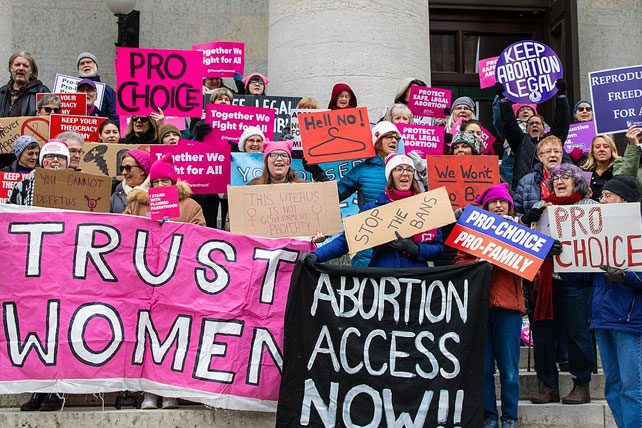When Carey Nieuwhof told the world that just when pastors thought we were ending the marathon of 2020, then 2021 handed us a swimsuit and a bike making this a triathlon. He wasn’t wrong. Clearly things have not snapped back, and it appears that things may never resume 2019 standards and strategies. And, that’s okay. While many pastors are hyperventilating or quitting these days, you don’t need to. Disciples still need to be made. People still need community. The climate around you has changed, but the mission remains the same. Are you ready to try some small group ideas that are working this fall?
Small Group Ideas That Are Working This Fall
1. Flexible Group Formation
All of your groups won’t look the same this fall. That’s okay. Your groups probably shouldn’t have looked the same in the first place. Depending on the impact of Covid on your community, your people will not all feel comfortable doing groups exactly the same way. That’s okay. Offer your people the flexibility to meet in-person, online, or a hybrid of that. They should do what feels comfortable to them with whoever they want, wherever they want, and however they want. Whether they are maskites or anti-maskites, they can find their people and do something intentional about their spiritual growth. Flexibility is the key. For more on starting flexible groups, go here.
2. Personal Invitation
Inviting leads to thriving in 2021. Leaders who take the initiative to invite people they know who in turn invite people they know are making their groups happen. Leaders who are depending on passive recruitment methods like sign up cards, websites, or group directories are feeling a little like the kid standing along at the junior high dance. (That wasn’t me. Our church forbade dancing).
Going along with the flexible format, leaders can invite their people. Who do they know who would enjoy or benefit from the study? Who do they want to spend time with anyway? This doesn’t need to be complicated. They just need to invite their friends. Who wouldn’t want to spend more time with their friends?
Prayer is a key part of successfully starting a group. Leaders should pray and ask God who He wants to join their group. Then, they should pay attention to who crosses their path. If they run into someone at the grocery store who they haven’t seen for six months, God is answering their prayer. If someone calls “out of the blue,” it’s not a coincidence. If group leaders truly want to start a group, they will take the initiative. Like Home Depot says, “You can do it. We can help.” You don’t need to fill anyone’s group.
3. Pastor Promotion
If you want people to pay attention to an invitation to start a small group, your pastor should make that announcement. Your pastor will get 3 times the result compared to you standing on the stage saying the exact same words. By virtue of your pastor’s leadership role in the church, you will get the best result. The pastor will do better than you, the campus pastor, the worship pastor, the service host, and the communication director combined. All you need to do is give your pastor a few bullet points, then be prepared to collect the response (HINT: Keep the response close to the invitation) and train your new recruits! This works. I have not personally recruited a small group leader since 2004, and I’ve served three different churches since then!
4. Adding a Strategy
If you’ve been at small group ministry for a while, your winning strategy has probably starting running out of steam, especially in 2020-2021. Your strategy isn’t broken. It’s just done all that it can do. One size simply doesn’t fit all. But, there’s no rule that you are limited to using just one strategy to connect people into groups.
By simply adding another strategy to what you are currently offering, your church can attract more people into groups than ever before. What does that look like? Well, if it ain’t broke, don’t break it. Offer your established groups to your congregation, then offer a second option like groups following a sermon discussion guide or sermon-aligned study. Many churches are using Rooted. While I’m a big fan of Rooted, it’s only 10 weeks. What do people do who aren’t ready for Rooted or who have already done Rooted (Yes, I know about Life in Rhythm)? Just offer another option. But, isn’t this confusing? (See the next section).
5. Blended Connection Events
When you have multiple offerings, the key is to promote “groups.” Don’t promote Rooted groups, and D-Groups, and support groups, and sermon-based groups, and, and, and… Just promote groups. When your people come to your connection event, then you can ask what type of group they are interested in. This way you can keep your current groups going and start new groups.
6. Emphasis on Connection Over Meetings
As you’ve seen not everyone can meet in-person and some groups don’t want to meet online. How do you have groups? Well, we can go back to the philosophical discussion of whether a group is a meeting or is more like a family. (I think “family” wins). Well, what do you do when the whole family can’t show up for a meal? Do you kick the absent members out? Of course not! They’re family.
If group members can’t attend meetings, you’ve got to keep the family together. Your leaders should “own” their group rosters. If someone is on their group roster, even if they rarely attend, they are the leader’s responsibility. Give them a call. Send them a text. Let them know that you care. The group may be the person’s only connection to the church or even to another human right now. These connections are significant. Encourage your leaders to reach out to everybody on their lists.
Think About This
Fall 2021 is a challenging ministry season. Some states are practically under lockdown again. Other states are enjoying their freedom. No matter what type of environment you are ministering in, God is using groups to accomplish His purposes. The numbers may not be what you had before. That’s when you need to count what matters.
This is a tough season, but it’s not the toughest ministry season of all time. Don’t lose heart. Keep making connections. Keep inviting people into community. Keep recruiting new leaders to gather their friends. Move with the movers especially now that so much seems stuck.
This article about small group ideas originally appeared here, and is used by permission.









 The email from Jon Gruden – and some of the reaction to it – confirms that the fight against racism, racist tropes and intolerance is not over. This is not about an email as much as it is about a pervasive belief by some that people who look like me can be treated as less.
The email from Jon Gruden – and some of the reaction to it – confirms that the fight against racism, racist tropes and intolerance is not over. This is not about an email as much as it is about a pervasive belief by some that people who look like me can be treated as less.






